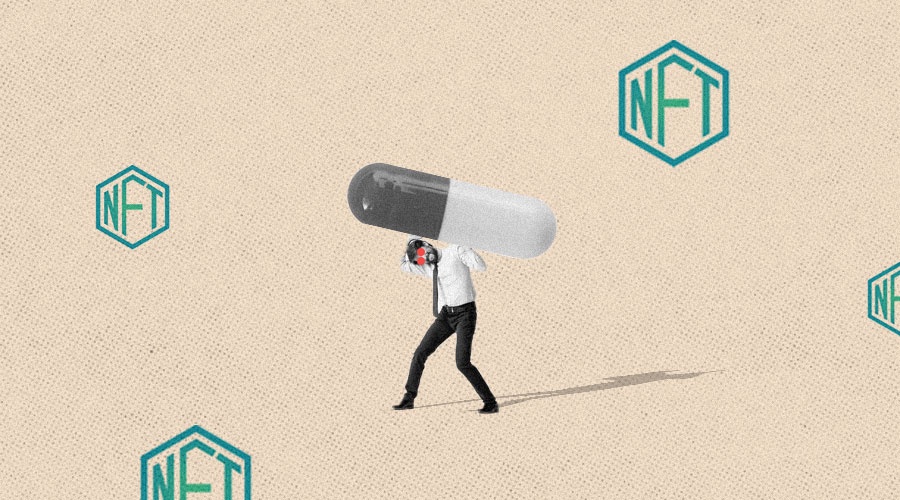In recent years, Non-Fungible Tokens (NFTs) have emerged as a revolutionary technology with far-reaching implications across various industries. While NFTs are commonly associated with digital art and collectibles, their potential extends beyond the realms of creativity.
NFTs in the Healthcare Industry
NFTs, as unique digital assets, hold immense promise for the healthcare industry. Through their inherent characteristics of indivisibility, verifiability, and scarcity, NFTs can facilitate secure and transparent transactions of medical data, patient records, and research findings. By leveraging blockchain technology, NFTs ensure immutability and traceability, providing a robust framework for data integrity and privacy protection.
Moreover, NFTs can empower patients by granting them ownership and control over their health data. With the ability to tokenize medical records, patients can securely share their information with healthcare providers, researchers, and insurers, thereby enabling personalized treatment plans, facilitating medical research, and streamlining insurance processes.
Advantages and Challenges of NFTs in Healthcare
NFTs bring forth a multitude of advantages within the healthcare domain. Firstly, they enhance interoperability by establishing standardized data formats and protocols, allowing disparate healthcare systems to seamlessly exchange information. This interoperability fosters collaboration and knowledge-sharing among healthcare providers, leading to more efficient and accurate diagnoses, treatment plans, and overall patient care.
Furthermore, NFTs enable monetization of medical data and intellectual property. Healthcare professionals and researchers can tokenize their expertise, clinical trials, or medical breakthroughs, and sell them on NFT marketplaces for digital collectibles. This not only incentivizes innovation and research but also opens up new revenue streams for individuals and institutions.
However, alongside these advantages, challenges also arise. Privacy concerns, data security, and regulatory compliance are critical considerations when implementing NFTs in healthcare. Striking the right balance between data accessibility and protection is essential to ensure trust and widespread adoption of this technology.
Case Studies: Successful Implementations of NFTs in Healthcare
[Case Study 1] Several pioneering initiatives have already demonstrated the potential of NFTs in the healthcare sector. For instance, an innovative medical research institute, leverages NFTs to tokenize genomic data, allowing researchers to access a diverse range of genetic information securely. By incentivizing data contribution through NFT-based rewards, this project encourages data sharing and collaboration, leading to breakthroughs in personalized medicine and targeted therapies.
[Case Study 2] Another compelling example is a healthcare startup that utilizes NFTs to authenticate and verify the provenance of pharmaceutical products. By tracking the entire supply chain of medications, from manufacturing to distribution, NFTs ensure the integrity and safety of drugs, mitigating the risks associated with counterfeit or substandard medications.
Future Possibilities and Innovations
The potential applications of NFTs in healthcare are still being explored, and future possibilities abound. One exciting prospect is the integration of NFTs with telemedicine and remote patient monitoring. By tokenizing telehealth consultations and remote patient data, NFTs can enable secure and auditable exchanges of medical services, enhancing patient-provider interactions and facilitating remote healthcare delivery.
Furthermore, NFTs hold promise in addressing the issue of medical counterfeit drugs. By tokenizing pharmaceutical packaging and embedding unique identifiers, NFTs can ensure the authenticity of medications, protecting patients from the dangers of counterfeit or substandard drugs.
Conclusion
As NFTs revolutionize the digital landscape, their potential to unlock value in healthcare is becoming increasingly apparent. From empowering patients and streamlining data exchange to fostering collaboration and driving innovation, NFTs offer transformative solutions to long-standing challenges within the medical field. However, it is crucial to address the associated risks and ensure robust privacy and security frameworks to fully harness the benefits of this technology. As we venture further into the future, the integration of NFTs in healthcare holds immense promise for improving patient outcomes, advancing medical research, and revolutionizing the way we approach healthcare as a whole.


No comments yet